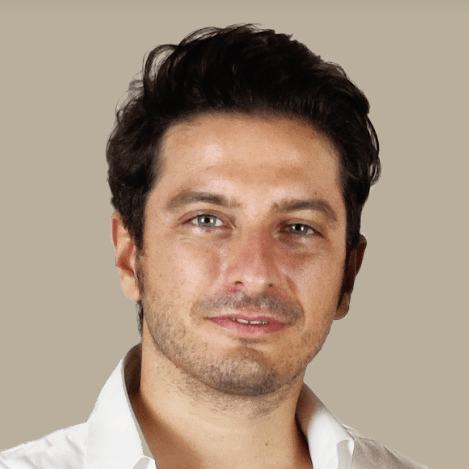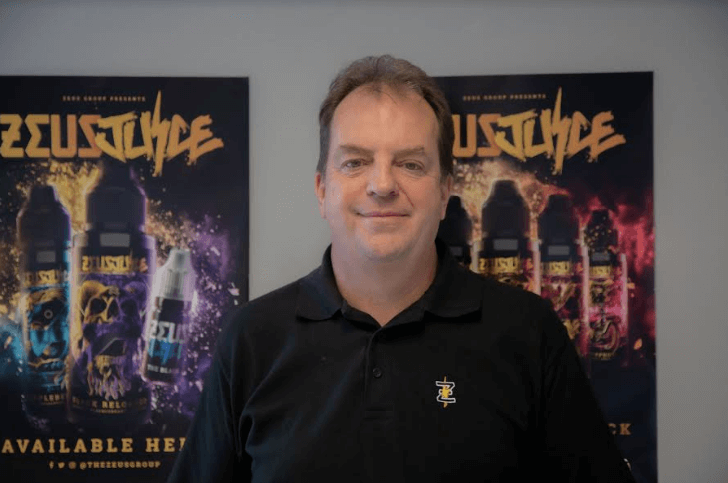It’s essential to keep the staff of a workplace motivated, helping not only to promote the energy people put into their jobs, but also to boost overall workplace wellbeing; attracting the top talent in while retaining existing valued staff.
But amidst a year of remote working, and a global health crisis effecting numerous facets of employee’s lives, many may have felt a lack of drive and motivation for their work.
So how can employers stop this? What are the best ways to motivate staff and how do we implement such methods? To help us answer these questions, here at TechRound we’ve collected comments from a range of different leaders, sharing opinions and ideas on their own methods of motivation.
Our Leaders:
- Stuart Kemp – Co-Founder and CTO of Reducer
- Catherine Warrilow – Head of PR & Content at RANK Interactive
- Ifty Nasir – Founder of Vestd
- Nathan Kelsey – Managing Director of Make Me Local
- Abi Humayun – Co-Founder of People Activation
- James Endersby – CEO of Opinium
- Jeremy Stern – Chief Executive at Promo Veritas
- Gabriele Musella – CEO Co-Founder of Coinrule
- Leanne Scaletta & Kimberley Wright – Operations and Marketing Director & Operations Executive at We Are Adam
- Joanna Swash – Group CEO of Moneypenny
- Toms Blodnieks – COO of DeskTime
- Lou Campbell – Director of Mindfulness in the Workplace Ltd
- Tim Allinson – Managing Director of The Zeus Group
- Stuart Deignan – Managing Director of Globant UK
- Jacob Sever – Co-Founder & CPO at Sumsub
- Mark Chaffey – CEO and Co-Founder of hackajob
- Jamie Goral – London Business Coach at ActionCOACH
- Dr. Ivan Zak – CEO at VIS
- Noa Matz – Operating Partner at F2
- Sam Sutton – Owner of New Forest Activities
- Alison Edgar MBE – Author of SMASH IT! The Art of Getting What YOU Want
- Nick Robinson – CEO and Co-Founder of Maison Sport
- Frank Days – Senior VP of Marketing at EDB
- Jeremy Blain – Chief Executive of PerformanceWorks
Stuart Kemp, Co-Founder and CTO of Reducer

“My grandparent’s generation valued job stability, good pensions and long lunch breaks. My generation of workers is looking for something completely different; purpose, ownership and flexibility.”
“Having a mission that employees can get behind is critical. I know founders who worry that their mission won’t resonate, because their startup isn’t looking to solve climate change or cure a disease. The truth is that purpose can be found in any sector when the mission is passionately communicated and shared by the team.”
“Almost everyone I know has worked a job where they felt like a small cog in a big machine. It’s not a nice experience. Employees today want ownership of their work. At Reducer we take that literally; every employee owns shares in the company. Ownership also means having agency over your own work, such as choosing what tasks to work on and how to develop your role.”
“We are rapidly heading towards a future where most of us do not work in an office from 9 to 5. As well as more remote working, employees want flexible hours. My grandparents would have seen mid-week fatigue as something to hide, my parents would have seen it as inevitable, and my generation think it’s a problem to solve.”
“Recognition is perhaps the most effective way to motivate staff. Recognition should be tightly coupled to a good result, personalised and heart felt. Annual bonuses are a disaster for most companies, fitting none of the criteria for effective recognition. Annual bonuses are loosely coupled to good results, completely impersonal and accompanied with no emotion from the leadership. Conversely spot bonuses; where employees are recognised for good work within the same week as the effort, with a gift that is tailored to them, and with a public commendation by the leadership, is invariably appreciated.”
Catherine Warrilow, Head of PR & Content at RANK Interactive

“I think one of the absolute key roles of a leader is to facilitate the creation of a vision within the team. This can be totally independent from the wider business vision but would likely reflect core company values. For me it’s around how we want to be perceived as a team internally and externally and how we work together to create extraordinary results, especially during more difficult circumstances.”
“From there, I see my role as an effective leader as bringing these five qualities to work every day. To give clarity on direction, objectives and deliverables. To listen and understand challenges. To support when we need to adapt, rethink or change direction. To challenge in a constructive way when there might be wider considerations or consequences. And finally, to recognise individual and team achievements, but also recognise and pre-empt difficulties or situations where people are not having an easy time.”
“People management is the hardest and most time consuming aspect of a role and will certainly keep a conscientious leader awake into the small hours. Leadership also often benefits from far less investment than the next big campaign, the all-encompassing report or the never ending meetings. But actually if you invest more so in your people than anything else, the rest starts to take less and less time and energy.”
For any questions, comments or features, please contact us directly.

Ifty Nasir, Founder of Vestd

“Nothing motivates a team like having skin in the game. If you believe in the ‘ownership effect’, as I do, then you’ll know that team members who benefit from share schemes feel much more driven to succeed than those without equity.”
“Sharing equity with your team aligns them in their goals and accelerates individual performance. Studies have shown this time and time again and the results can be seen in the success of businesses that offer their staff members equity.”
“In December 2020, we asked 2000 British employees what they were looking for in the workplace and one third told us that they were looking for roles that come with the reward of shares or options in the company.”
“Share schemes light a fire under a business and act a springboard for rapid growth.”
Nathan Kelsey, Managing Director of Make Me Local

“Aside from regular recognition and reward for achievements, I am a big believer in being transparent with my team. Having insight into how our business is going makes my team invested. I make a point to share financial data, statistics, feedback and challenges with them on a regular basis. I do this face-to-face as a team so I’m able to answer any questions and gage reactions, as well as sending out weekly sales reports. I share customer reviews, meeting feedback (good and bad) and regularly ask my team for help on which direction they feel we should be taking, improvements we could make etc.”
“Having access to all the data and information reassures employees they’re an important part of the business. It also helps point out areas where things could be improved. On a personal note, it is also comforting as a manager to know I can lean on my team for support if it were ever needed.”
For any questions, comments or features, please contact us directly.

Abi Humayun, Co-Founder of People Activation

“Nothing motivates individuals better than praise and if people feel that their ideas are appreciated, they will continue to show up and contribute in important ways.”
It doesn’t take much time to do. A quick ‘well done’, ‘that’s a great idea’ or just ‘thanks for your input’, goes a long way in making people feel engaged in what they are doing.”
“Gratitude is contagious. Set aside time to recognise your team’s achievements, big and small, and encourage them to do the same to each other. The community spirit in your team will be stronger than ever in no time.”
James Endersby, CEO of Opinium

Polling company Opinium is used to questioning members of the public on their voting intentions and buying habits.
But following the appointment of James Endersby as CEO, the company has also turned attention to its own people — seeking employees’ opinions on how to improve the business itself.
James Endersby, CEO of Opinium “We turned the audits on our own team and we asked employees anonymously about their mental wellbeing at work.”
“You have to be quite brave to do something like that, but we immediately found areas that we can improve.”
“One fundamental change that came about as a result of staff input, was the removal of probation periods.”
“When you join a company which has a probation period in the contract, what you’re really saying is you don’t trust your recruitment process and it’s admitting that you may have made the wrong decision.”
“We stopped the practice straight away because we want to back the people we hire.”
In addition James says “I attend every single review because it’s important to hear exactly what their concerns are.”
“CEO’s should ask their employees what they want to see change in the business, because they’re the people out there every day on the front line.”
“The information they can provide is really powerful.”
As a result of employee suggestions, Opinium introduced flexible working and time off for staff to explore hobbies outside of work.
Opinium’s status as one of the best places to work in the industry, is supported by the fact that staff are given a stake in the business.
A third of the equity in Opinium was released and given out to employees, with plans to increase this to 50% of the company.
Endersby says: “We have the ability to make people partners in our business, which I almost think is a bit of an unfair advantage sometimes.”
For any questions, comments or features, please contact us directly.

Jeremy Stern, Chief Executive at Promo Veritas

“Our method of motivation involved Mr Potato Head !! Everyone in the company was given a Mr Potato Head body, and it sat on their desk. Visible to all.”
“Every week at our team meeting, I would ask individuals to nominate a colleague who had been particularly helpful, gone above and beyond etc. And if it felt justified, I would then award that colleague a Potato piece, an arm, leg etc.”
“Over the weeks, people would add their pieces to the body, and when it was complete, they would exchange it with me for a £50 shopping voucher.”
“It worked at three levels: speed, visibility and variety. We did not wait until annual appraisal, it was done weekly, in front of others, and the potato head was a clear indicator of where someone was in the journey to the cash reward. Plus a reward could be given for all sorts of things, from covering for someone on sick leave, to doing some work over weekend or whatever. It was unstructured and adaptable.”
“Did it work? Well we were nine people when I started it and we are now 40 people and 6 times the turnover…but do we still run it? No, everything runs it course, and it was in danger of becoming boring, and people were gaming it I will recommend you, if you recommend me)”
Gabriele Musella, CEO Co-Founder of Coinrule

“In leading a fully remote team, one of the most important things for me is to ensure that employees are always motivated, energised and excited about the work they do. As the likelihood of feeling unmotivated and disengaged is higher in a virtual workplace, motivating staff is top priority.”
“To achieve this, I prioritise open communication as part of Coinrule Company’s culture. Periodically, we gather together as a team and give ideas and suggestions on things we should (a) continue doing, (b) stop doing and (c) start doing.”
“Everyone’s opinion matters and everyone is encouraged to speak up. This ensures that everyone’s concerns are addressed and they are involved in setting workplace practices. I also ensure that employees are carried along and they always know the short and long term goals to be achieved. I bring them in to see the bigger picture of the business and how their individual contribution has and will impact the business.”
“Asides from open communication and transparency, I also ensure that all employees achieve work-life balance. I don’t believe that our lives should revolve around work instead we should try to fit work into our lives. This is why we adopt flexible scheduling that can fit into the lives of each employee. We give regular time off for vacations and relaxation.”
“Also, there is commitment towards the overall development of employees. We encourage employees to gain new skills and pay for courses, seminars and conferences that contribute to their development. We show commitment to their career development and ensure that they have a career growth path within the company so they always have something they are working towards.”
“Furthermore, in boosting motivation, I ensure that there are incentives and bonuses for great performance and praise employees for tasks well done, celebrate their successes and celebrate them on important days in their lives. I also make it a point never to micromanage employees. Everyone takes full responsibility and ownership of their tasks.”
“Finally, I ensure that friendliness and respect is ingrained into the culture lived out by all employees and that we all bond through various team activities.”
For any questions, comments or features, please contact us directly.

Leanne Scaletta (Operations and Marketing Director) & Kimberley Wright (Operations Executive) at We Are Adam

“The main thing that we have found works for us is that our leadership team have a *lot* of trust in our employees. The SLT (Senior leadership team) are firm believers in giving us autonomy, trusting us to do our work, and trusting in our ability to do our jobs. If we need help or support, they trust that we will approach them for help and guidance…which we do, without hesitation!”
“We also believe that creating a pleasant environment that you enjoy being a part of is a huge factor. Whether it’s in the office or working from home, your employees need to feel comfortable and like they want to be there. Our leadership team puts a lot of focus on making sure that this is the case for us, and I believe that this pays off by us producing better work.”
Kimberley adds: “On a personal note, this autonomy and trust is something completely new to me. I come from a retail background, and I am used to having to explain my reasoning behind every action, must always be busier than I can realistically manage or else be seen as ‘slacking’, or being watched doing every task. The autonomy I get to complete my work at We Are Adam is completely new to me, and yet I’ve found that I am producing some of my best work this way, as well as being the happiest I’ve ever been in my career.”
Joanna Swash, Group CEO of Moneypenny

“Through creating a safe environment. This means not only creating a pleasant and fun place to work, but it also means creating an overall environment in which your people will flourish. This includes empowering employees to do the right thing and trusting them to do it, giving them the confidence in failure (within set boundaries), being transparent, communicating and ensuring that everyone understands and values the skillset of each other.”
“Mental wellbeing is also a key component to creating a safe environment. The principle extends way past the office doors and encompasses the wellbeing of the employee at home and at work; from weekly mindfulness sessions to empathising with potential personal issues to fun and unexpected activities and random acts of kindness, from handwritten notes to a turkey at Christmas.”
“It is about making life work for everyone and looking after your people. I ask my team to think of an imaginary circle with the things they can directly control in the centre, the things they can indirectly control as the next circle out and the things they have no control over at the outside. I ask them not to worry about the outer circle – a global pandemic is not within their sphere of influence. I then ask them to do the best job possible in the things directly under their control and for us to collaborate on indirect areas to try and figure out how we need to adapt and make it work. This ethos has stood me in good stead through the pandemic. My team knows that I trust them and there is no guilt.”
“If you create this environment and nurture it, it will provide the platform not only for motivated, engaged employees but also allowing said employees to fulfil their potential. Brilliant people can do brilliant things, given the opportunity.”
For any questions, comments or features, please contact us directly.

Toms Blodnieks, COO of DeskTime

“First of all, ask yourself if all your staff needs to be motivated or only some team members. If all your team lacks motivation, it may indicate a bigger problem.”
“I’m a firm believer that loving your job and feeling intrinsically motivated should be the main driver. However, salary is another important factor that represents support, motivation, and gratification from your employer. Salary may not always be the main motivator, but it fosters the feeling of appreciation.”
“At DeskTime, we try to avoid getting caught up in routines by regularly engaging employees and offering them positive challenges. We have found that engaged employees are naturally more motivated and proactive instead of mechanically performing their tasks.”
“If the company is big, employee engagement should be a responsibility of the HR department; if it’s a smaller team, the colleagues can develop ideas and initiatives together. Engagement can be something small like team building games, listening to and implementing employees’ ideas, watching sports together, or having a picnic or a sporty activity together. At DeskTime, we also have a calorie-burning challenge with a traveling trophy. Keeping employees in the loop about everything that’s going on in the company helps them feel like they truly belong to it.”
More from Interviews
- A Chat with Kebbie Sebastian, CEO and Founder of Merge
- Meet Dr Agnès Leroy, GPU Director at Cryptography Tool: Zama
- Meet Roman Eloshvili, Founder of ComplyControl
- Inside Mobile Payments with Bojoko’s Ville Saari
- Meet Steve Haskew, Group Director of Sustainability and Growth At Circular Computing
- A Chat with Hakob Astabatsyan, CEO and Co-Founder of Synthflow AI
- Meet Ernesto Suarez, CEO at Travel Insurance Provider: Gigasure
- Under Pressure and On the Clock: Gurhan Kiziloz’s Nexus International to Hit $1.45B Revenue in 2025
Lou Campbell, Director of Mindfulness in the Workplace Ltd

“My methods for motivating staff are a combination of a) the “manager server” model; b) the neuroscience model and c) the autonomy and ownership model.”
a) “In the “manager server” model, the manager acts as the person in the team who removes any obstacles that prevent their team members doing their best work. The manager meets the needs of the team members, rather than expecting the team members to meet the manager’s needs. This is the opposite to how many managers operate, however it is extremely effective and motivating for team members to know that the manager is there to help and support them. Sometimes this highly motivating form of leadership is called Servant Leadership (https://en.wikipedia.org/wiki/Servant_leadership)”
b) “In the neuroscience model of motivating team members, the manager understands that energy, motivation, creativity and high productivity are all closely linked and stimulated by the neurotransmitters serotonin and dopamine (chemical messengers in the brain that are responsible for energy, motivation, creativity). A good manager who knows how to motivate their team will encourage team members to do the things that stimulate and enhance neurotransmitter function – i.e. to take a proper break in the middle of the day, to have time to eat a decent meal at lunchtime, to put away their work screens/phones/laptops etc. and have a proper break outdoors in daylight. Daylight exposure boosts neurotransmitter function and increases the motivation drive – something which needs to take place on a daily basis. Managers who encourage their team members to overwork and don’t strongly encourage them to take a proper break in the middle of the day are simply reducing motivation in their team members at a really basic neurotransmitter level.”
c) “Finally, the autonomy and ownership model is the opposite of the micromanagement model. When team members have ownership over their work, and agency over how their work is completed, they are more likely to feel motivated and responsible for their work. Micromanagement reduces autonomy and agency, and chronically depletes motivation.”
For any questions, comments or features, please contact us directly.

Tim Allinson, Managing Director of The Zeus Group

“I think that it boils down to being really clear about what your targets are with everyone. We work hard to bring every member of staff into the conversation around this: from those working in the lab and the production staff through to the cleaning staff, we all play a part in staying aligned, motivated and goal orientated. I believe that no matter what job you’re doing, it’s important to know what constitutes a good day or a bad day.”
“Of course, the little things like, parties, team lunches and flexible working also help, but that is standard at Zeus Juice.”
Stuart Deignan, Managing Director of Globant UK

“Keeping people motivated is a fascinating topic, and especially when you employ hugely talented and ambitious people. Aside from creating a culture of intellectual curiosity, and transparency around corporate decision making, what I have found is that the key to an enthused and motivated team is having stimulating work for them to do. Work that stretches them. Work that has a profound positive impact on our clients, and helping our clients be more successful.”
“Luckily Globant is an organisation that helps some of the worlds most respected brands solve really tricky problems – for example, recently one of our teams worked with a global automotive manufacturer to create a way to remotely buy cars that is as engaging and enriching from a buyers point of view as going into a showroom to buy a car. That is a surprisingly complex and difficult thing to achieve, drawing on many aspects of new and emerging technology to achieve, as well as understanding human behaviours. Fortunately Globant is home to many experts in these areas and we thrive on creating multi-disciplinary teams that spark off each other to create these solutions for clients. It’s this sort of challenging work that really motivates people.”
For any questions, comments or features, please contact us directly.

Jacob Sever, Co-Founder & CPO at Sumsub

“We noticed that direct contacts with the founders, opportunity to influence business processes and overall work environment are what motivates our team the most.”
“Contact with founders provides employees with a sense of ownership and the opportunity to be heard. This leads to the second important factor – the ability to influence business processes making them more efficient.”
“The freedom to make certain work-related decisions allows our team members to organise their work processes and to see the final results. And, of course, anything is much more pleasant when you are surrounded by real experts and professionals. This is why we strive to hire only the best people to keep the whole team’s motivation high.”
Mark Chaffey, CEO and Co-Founder of hackajob

“There are lots of things that managers can be doing to motivate employees who are working remotely either part or full-time. Something we actively encourage at hackajob is to take time to go outside and get fresh air whenever possible. We’re fostering an environment where people know they can down tools and take some me-time, as and when they need it, no questions asked.”
“Following on from this, another thing we highly recommend is to make some meetings (e.g. the morning stand up) walking meetings, where teams can chat while going to get a morning coffee etc. It might seem small, but it’s all about giving teams autonomy. In our recent survey, almost 75% of developers and engineers state that company culture is something that matters to them when choosing between organisations for a new role, so it’s important not to forget about this aspect. Obviously, there are lots of ways to incentivise employees who are working from home. Sending them merch, little treats and, of course, not forgetting to organise virtual company socials, all count towards not only making employees feel involved but motivated too.”
“For tech talent, giving them personal learning and development time is crucial. As part of our survey, we found that 62% of developers and engineers want a learning and development budget, so giving them even 10% of personal time per engineering sprint is a great way to give back to your teams and show them that you not only care about the work they are doing for your organisation but also the work and learning they’d like to pursue in their free time too.”
“Finally, something we swear by is having weekly all-company meetings and regular check-ins/one-on-ones with teams and staff. Taking the time to be transparent and enable your teams to have a safe space to host ‘Ask me anything’ talks or ask questions about the business, is key. With most of us currently working from home, it’s important to make sure that you’re updating people, not keeping them in the dark, and keeping them engaged and bought-in wherever possible.”
For any questions, comments or features, please contact us directly.

Jamie Goral, London Business Coach at ActionCOACH

Jamie Goral is an award-winning London-based business coach with ActionCOACH, coaching clients on profitability, efficiency and time in their business. Whilst the pandemic shook the globe, Jamie was equipped with the strategies to help business owners navigate the situation and come out stronger. Motivation took a hit and Jamie shares insight into how business owners can bring those levels back up.
“Gone are the days of the old ‘carrot-and-stick method’ for motivating teams.,” said Jamie. “Today, we’re in a very different era, where intrinsic motivation is the key to business success. As Daniel Pink explains in his book, Drive, there are three branches that create complete motivation within an individual: Autonomy, Mastery and Purpose.”
Acknowledge milestones, big and small: Major milestones are easy to identify and often the most recognised accomplishments. While it’s important to appreciate big wins, it’s equally important to acknowledge the little wins as well. Major goals can be broken down into small steps, each as important as the next. Celebrate your team as they push towards goals and provide plenty of encouragement to keep moving forward.
It’s also important to have regular check ins with employees to feedback on their performance. Humans are naturally striving to move up, so offering positive feedback and constructive criticism during these reviews can help keep them on track. These meetings will give them the chance to take accountability and ownership over their jobs if they see where it could lead to in the future.
Keep your words positive: Managers and leaders are not exempt when it comes to negativity or toxicity within teams. In fact, managers can be the root of the problem. Monitor your words and how you communicate with your team. Are you highlighting the positive or focusing on the negative?
Your team will take cues from the way you speak and the words you use. You don’t have to pretend issues don’t exist or sweep problems under the rug but avoid falling into a spiral of negativity by creating solutions rather than dwelling on the problems.
Express gratitude: There are countless ways to express your gratitude for your team, and you can never do it too much. From complimenting your team members to offering a simple thanks, gratitude can be big or small. If possible, consider letting your employees finish work early or surprise everyone with lunch. You know your team best, so you can decide what will make the biggest impact.
Expressing gratitude, even in the most difficult times, can keep your employees positive, whilst simultaneously making them feel valued and respected.
Allow room for manoeuvre: More often than not, employees work best when they have the ability to choose how and when they complete their tasks. With this trust, they feel much more comfortable within their roles, leading to natural competency.
Similarly, if an employee has a particular flare, then be sure to nurture that rather than suppress it. Consider what talent they bring to the team and think of a way to incorporate it into their everyday role. Empowering team members and making sure they feel valued will support the retention of staff, and therefore motivation to keep moving forwards.
Dr. Ivan Zak, CEO at VIS

“Employees are motivated when they are united around the same purpose, when they understand how their everyday work contributes to achieving the company goals, and what’s important – when they feel their efforts are appreciated and recognised by the team and leadership.”
“Bottom-up goal setting using the Objectives & Key Results (OKRs) system is a great way to achieve that. It’s a goal-setting framework that was first embraced by Google and has since been effectively used at companies like LinkedIn, Twitter, Uber, and Microsoft. The main principle is that objectives (goals) at the top of the organisation are directly linked to the 3-5 key results in the next level, which become objectives for that level and cascade key results downstream again. The goal of OKRs is to execute objectives through specific and measurable results.”
“Cascading goals focus and engage people because they understand how their work relates to that of the company, increasing teamwork, productivity, and ultimately – motivation.”
Noa Matz, Operating Partner at F2

1) “One of the most important ways to motivate staff is to create a sense of ownership. If you give a team member a task in which they are singularly responsible for the outcome and know they are trusted with something strategic and central – the motivation is organic.”
“To make every team member feel like they are needed, one must make sure not to hire staff whose skills completely overlap. Rather hire people who have unique skills and are experts in a specific area – then actively give them the freedom to use those unique skills.”
2) “Ensure that your work culture suits the staff you hire. Not everyone is suited to sitting behind a desk from 9-5 in a suit and tie. Understanding how to motivate staff starts from the hiring process, and this is the perfect example.”
“If your work environment lacks any flexibility, don’t hire that free spirit who works best at nights – nothing will crush motivation more. And if your company is able to be flexible, tailor the work environment to different staff members. People thrive and are motivated when they feel satisfied, and work environment is a huge contributing factor.”
For any questions, comments or features, please contact us directly.

Sam Sutton, Owner of New Forest Activities

“Motivation can conjure up all kinds of cringey images and memories of well-intentioned events or courses that we’ve probably all been on at some stage but it really doesn’t need to be like that.”
“It might sound a tad “woolley” as a topic for some people (and this is where the challenges and criticism lie) but with the correct processes in place, the management of motivation can be a powerful weapon in your team building tool kit.”
So how do ensure we’re less David Brent and more Tony Robbins?
“It starts with clarity and providing your team with clear processes, standards and accountability. First off, think about the workplace like an extended family. Make it clear to your team that although getting the job done and performance is crucial (which we will come to later), you regard it as being secondary to their family and their health.”
“Allow them the time to ensure their lives are in balance and check that they know this is important to you as a leader and as an organisation. Ultimately, this comes down to your culture.”
“There is a famous line around culture, which comes down to the fact that whether you think you have one or not, one definitely exists. So as leaders, we need to ensure that it is the culture we want to have!”
Culture Club
“Start by having a clear purpose, why does your company exist? How are you making the world a better place? Do your staff know this and are they able to clearly articulate it to those who ask?”
“Get excited about this and make it crystal clear, it will rub off on your team.”
“In addition to that core vision, work on a set of core attitudes which compliment your values. Here at New Forest Activities, ours are Passion, Responsibility, Gratitude & Kindness.”
“Once you have your culture and vision in place and everyone understands their part in it, give your team proper responsibility and ownership of both the challenges and the solutions that they face in working within these parameters.”
Mistakes are OK, OK?
“Also, try to coach them, rather than direct them. Make it clear that mistakes are OK and that ultimately, learning from feedback is how we ALL grow.”
“The feeling that the whole motivation piece is a little nebulous is understandable but it needn’t be like that. We can introduce rigour by making motivation a regular part of the working year.”
“Start by running 90 day planning workshops with at least your senior team. These produce your business growth plans and keep you all focused and accountable.”
“From there, it is about knowing your numbers and keeping a “scorecard”.”
“That scorecard is a great tool but the key factor in it being a success is whether your staff know what your company scorecard looks like!”
“More importantly, do they know specifically how their role makes a difference to the numbers? By sharing the rules of the game, everyone has clarity and everyone can see their own path to success.”
“With the rules in place and agreed, you can then pay bonuses or incentives based on the numbers and keep the motivation and energy levels up every quarter, not just on the few days following your annual away-day!”
Alison Edgar MBE, Author of SMASH IT! The Art of Getting What YOU Want

As managing Director of Sales Coaching Solutions Alison Edgar MBE was voted the UK’s number 1 sales and marketing adviser (Enterprise Nation) and is now a Judge of the Great British Entrepreneurs Award, after winning the special merit title.
She has advised No10 on start ups and guided multiple entrepreneurs including two Dragons’ Den winners and The Apprentice champion Alana Spencer.
Alison Edgar MBE, author of SMASH IT! The Art of Getting What YOU Want, said: “Something I say to all organisations that I work with, is “nobody loves your baby like you love your baby”. What I mean by that is your business is your pride and joy, you will always put in 100% effort, 100% of the time. However, for some members in your team, it is simply a means to an end. Their job pays their bills at the end of the month, and factors such as salary, pay, and benefits will only motivate, or satisfy an employee so far. It’s important that the leaders in the organisation are identifying motivating factors for their employees, such as achievement, recognition, growth, and responsibility.”
“But how can an organisation embrace and deliver those motivating factors? For me, it comes down to Intrapreneurship, and this is something I have delivered with the Senior Leadership teams at SkyBet, Discovery Channel, and Equifax. Intrapreneurship is the act of behaving like an entrepreneur inside of a larger organisation, and it is by encouraging this kind of thinking that motivates the employees and ticks those motivation boxes. It opens their eyes to understanding the role they play in the team and allows them to notice the impact their actions have.”
“To do this, I ask teams to think about three things. ‘What would I do if it was my granny? My first day?’, and most importantly when it comes to motivation, ‘What would I do if it was my business?’. This doesn’t mean surrendering all power to your team, of course. It’s simply about providing that safe space and opportunity to think as if they were in control. Not only does it motivate your team by providing them with more responsibility, but it encourages outside-of-the-box thinking which ultimately results in more innovation within your organisation.”
For any questions, comments or features, please contact us directly.

Nick Robinson, CEO and Co-Founder of Maison Sport

Maison Sport is the only ski instructor marketplace dedicated to independent instructors. The platform directly connects skiers and snowboarders with independent instructors across Europe, and has become a game changer for the industry, offering reduced costs to customers and a more ethical and profitable practice for instructors.
Started in 2016, the tech company was founded by three former British ski champions – Nick Robinson, CEO and his brother Olly Robinson, COO, and Aaron Tipping, CFO.
Despite the pandemic, Maison Sport has continued to expand and evolve over the past year, more than doubling employee numbers to 15. The founders expect to employ over 20 staff by the end of this year. Culture and people are at the very core of Maison Sport and a key strategy for the business from day one has been to attract and retain the best tech talent to ensure technology remains at the forefront of the business and that the user experience for both the customer and instructor is accessible, fast and seamless.
Co-founder and CEO Nick Robinson explains; “I think one of the key motivators for our teams has been our open and honest culture. As founders, we have a clear vision about the direction we want to take the business. We’ve found that sharing this vision and how we’re progressing toward it with our teams has been vital. We’re always transparent about how the business is evolving and how each and every one of the team fits within the business and its growth.”
“We’re still a small team but one of the things we’re determined to retain is the value we place on every single individual. Telling them how important they are to the business and thanking them when they’ve achieved something or worked really hard is so important for motivation, but often it’s easy to forget to do.”
“Maison Sport began in 2016 and we’re still a small start-up – we do what we do because we’re incredibly passionate about the industry as are our team, but even as a start-up we’ve always felt it was important to pay people well. It’s not always easy to do as a small business, and while money isn’t our biggest driver, it’s important to show you value the work the team does. Paying our employees as well as we possibly can from day one has helped keep everyone feeling positive, motivated and valued.”
“We’re also very focussed on helping our employees be the best they can be – that means giving them opportunities to keep them motivated, challenged and inspired – it may even mean helping them build their own business one day.”
Frank Days, Senior VP of Marketing at EDB

“The best way to motivate your employees is to help them stay happy and healthy – because when you take care of your people, they take care of your business.”
“To develop a genuine connection with employees and provide meaningful support, it’s important to listen closely to their needs. At EDB, we run regular staff engagement surveys to understand what’s on people’s minds, and we’ve learned that sometimes the ‘little’ things are actually a big deal. For example, if employees are working from home, don’t underestimate the importance of a comfortable chair, the right monitor and a good internet connection. Also, Zoom fatigue is very real, so we give people permission to switch off video if they’re feeling uncomfortable.”
“The pandemic was a catalyst for change in our employee wellbeing initiatives. We realised people were taking fewer holidays, so we introduced ‘Wellness Fridays’ – an extra company-wide day off every third week. This normalises taking time out to recharge and de-stress, and ensures that everyone can look forward to regular breaks.”
For any questions, comments or features, please contact us directly.

Jeremy Blain, Chief Executive of PerformanceWorks

“Beyond salary and remuneration, employees are now more discerning about who they work for and what that work should look like. In fact a key motivation factor across individual contributors is the need for ‘meaningful’ work supported by more human-centred leaders.”
“In my research ‘The Enlightened Leader©’ published in January 2021 – we asked employees for what they wanted more of and what they wanted from their leaders. Number one on the list for employees themselves was to be more empowered, supported by appropriate collaborative technologies, so they could contribute beyond their job role and to the broader business. This is reinforced by the US company SABA who found in their research that 70% of US employees consider themselves leaders at their level.”(www.personneltoday.com/hr/crucial-create-leaders-levels/)
“Employees also feedback the number one need from their leaders was for greater demonstration of empathy. Supporting employees on a human level as well as more traditional ‘show me the numbers’ leadership.”
“If we put these together – a more empowered workforce who can truly step up as leaders at all levels, supported by more human, empathic, supportive leaders – then we create a mobilised, engaged, more motivated workforce capable of more than just a job description.”
“This creates a culture of autonomy, a term coined by Marina Krakowski, rather than a culture of compliance like many traditional organisations. It’s in this bold new approach that employees can truly step up and show what they can do. It’s motivational and rewarding for all. Not just employees and not just individuals.”



